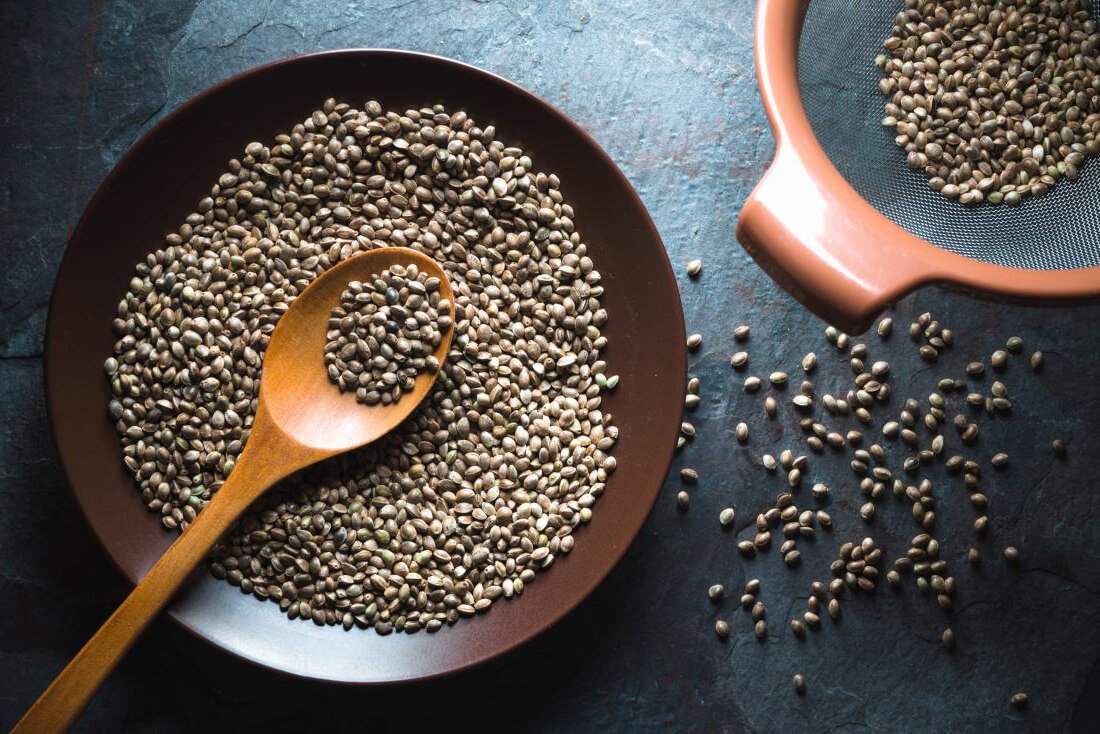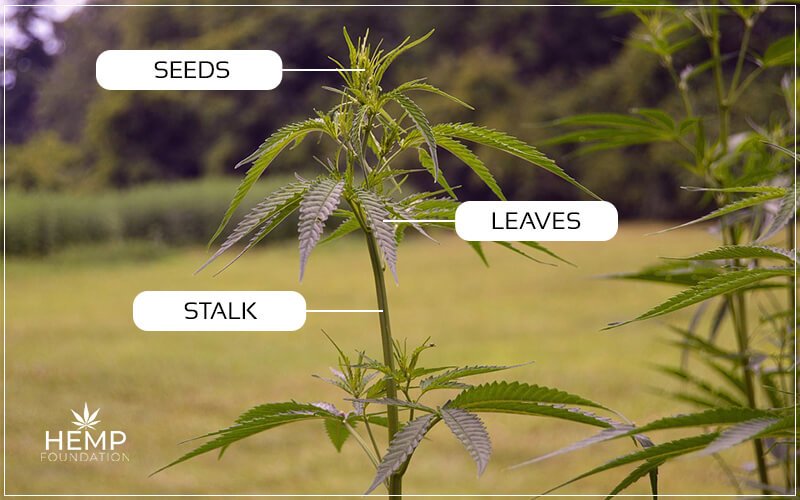Nature never ceases to amaze us and hemp is one part of nature that just cannot be avoided. Hemp is a multipurpose plant and every part can be processed to be something useful.
The only thing hemp cannot do is get you high like its cousin plant – marijuana. A common misconception that led to hemp being illegal for an unnecessarily long time. We’ll tell you more about all this, and introduce you to the different parts of a hemp plant, in this guide.
In 1938, an article published in Popular Mechanics called hemp the new billion-dollar crop. It started thousands were lining up to engage in this miracle plant. Less than a year after this article, the American government began imposing restrictions on the growth of any cannabis plant including hemp.
Hemp is a weed with a threshold limit of 0.3% THC giving it none of the psychoactive qualities of marijuana. After years of misunderstanding, hemp is making its way back into the limelight. America has a deep-rooted history with hemp including two founding fathers vouching for the plant.
Comparatively, hemp is a much taller plant than marijuana. The hemp leaves grow on the top of the plant keeping it closer together. Additionally, hemp is a much more adaptable plant and can grow under a range of conditions. It does not require the same amount of care needed for the marijuana plant either.
Source:washingtonpost.com
The Endless Uses Of All Parts Of A Hemp Plant
Now that hemp is slowly becoming vital for a more sustainable life, we must understand just how useful this plant is. The 4 parts of a hemp plant, seeds, stalks, roots and leaves. The seeds make fuel, the stalks make fiber, the leaves make medicine and the roots cure the soil. Each use of the plant is bound to replace the present availability like cotton and petrol.
Seeds Of Wonder:

Source:ministryofhemp.com
The hemp seeds are the most useful parts of a hemp plant as it is not only nutritious but also used to make fuel. Consuming the seeds has become popular among vegetarians and athletes who consider it a superfood like flax and chia seeds. Here are some of the amazing nutritional benefits of hemp seeds:
- Hemp seeds can sustain our dietary needs without any other supplements.
- The seeds have essential fatty acids – Omega 3 and Omega 6 that boosts the immunity and controls cholesterol levels.
- Hemp seeds are a good source of Vitamin B and E and minerals like sodium, calcium, iron, sulfur, potassium, phosphorus and zinc.
- The seeds are also a great source for arginine and gamma-linolenic acid (GLA). GLA is said to reduce the risk of heart diseases and reduce menopause and PMS symptoms.
These seeds of wonder can also be processed and turned into fuel that can replace petrol as a more sustainable option. Hemp biofuel made from the seeds is the only alternative fuel to complete EPA Tier I Health Effects Testing under the Clean Air Act in the U.S. Hemp fuel is more reliable than fossil fuels and other biofuels.
The main reason hemp seeds are considered as a superfood is because it can be made into a number of consumable goods like:
- Hemp seed milk is a nutty-flavored alternative to dairy but this milk has an acquired taste.
- Hemp coffee beans is a blend of coffee and hemp seeds making it a fairly healthy caffeine drink.
- Hemp tea is another perk of the seeds, allowing you to enjoy tea with a nutritional twist.
- Hemp seed flour is healthy and gluten-free making it an excellent source of energy.
Marvel In the Stalks:
Source:ministryofhemp.com
The bast and hurd of the stalks are extracted to use for a number of commercial products. The bast of the hemp plant are the fibers in the stalk. For centuries, the fiber has been used to produce textiles like clothes, bags, shoes, eyewear, belts, etc. The long fiber strands extracted from the stem make for extremely durable clothes and accessories.
Durability is the biggest problem in the clothing industry today and hemp is offering exactly that. Hemp has antimicrobial properties that makes the fabric stronger and more durable than most. Unlike cotton, hemp clothes will keep their shape and not wither away with every wash.
The shives or hurds are the inner woody core of the hemp stalk. The hurds are collected while separating it from the fibers. This part can be made into horticultural mulch or used for animal bedding or litter.
Comfort In the Leaves:
While the seeds are a superfood and the stalks are super stylish, the leaves have comforting extracts. More than 80 different compounds can be found in the hemp leaves including CBD (cannabidiol). Cannabinoids have antioxidant properties that help in treating oxidation associated diseases.
Hemp essential oils are made by steam distilling the leaves and flowers of the plant. The upper part of the leaves is used to capture the pure essence. This essential oil has a highly concentrated therapeutic aroma. It is also one of the most expensive oils in the world as it takes 50 pounds to make 1 ounce of the essential oil.
Raw hemp leaves are a source of nutrition as well. They are full of powerful antioxidants like polyphenols that help delay aging skin. The leaves are also rich in digestible globular proteins as well as Omega 3 and 6 fatty acids.
Healing In the Roots:
Hemp is truly the most versatile plant nature has to offer and the healing qualities of the root should be enough for worldwide legalisation. The medicinal qualities of the root were discovered and used as early as ancient China. The hemp root has an organic molecule called glycoside that rids the body of harmful toxins.
Our ancestors made the hemp root part of everyday medicine by healing fevers to excessive bleeding. Grinding up roots seems a bit old fashioned with today’s advanced medicine but think twice. The roots are natural while today’s medication has proved to be a bad long term plan.
Understanding the many benefits of the root is assured to make you give this miracle healer a try. Here are a few of the many uses of the hemp root:
- The roots of hemp are known to relieve cramps, inflammatory arthritis and joint pains.
- An infusion of the root can be used to ease burns, hemorrhoids and eczema.
- The root has been used to treat gout, digestive problems and rheumatism.
There are over 50,000 known uses of the hemp plant from paper to medication. Growing hemp means a renewable source for raw materials that can replace all the nature of killing products. The Hemp Farming Act of 2018 allows American farmers to grow hemp as a rotational crop. This historic move will pave the way for a sustainable life in the midst of a climate crisis.
Picture this, a life with durable and eco-friendly products, renewable energy and fresh air – this is the future of hemp is made a part of it. The plant will revolutionize our way of life significantly, reducing our carbon footprint in the process. Hemp grows easily and nurtures the soil with its deep roots.
Overall, the plant is ideal to make a comeback as we fight for sustainability and in turn the planet. Hemp may not be the only solution for climate change but it most definitely is one of the biggest. Take this opportunity to Go Green, Grow Hemp!


